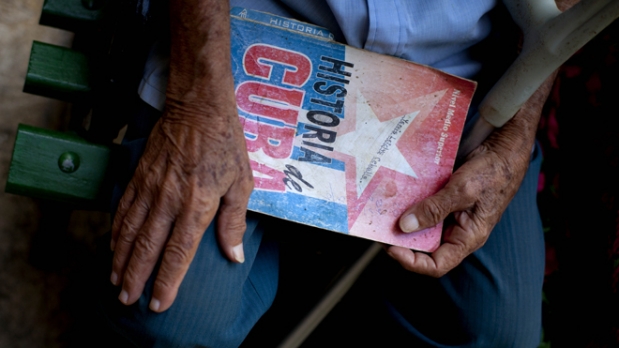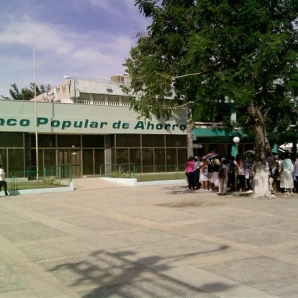
“The mobile phone you are calling is turned off or is out of the coverage area,” is the response Cuban mobile phone users commonly receive these days. As a result of the cellular blackout and lack of official information, rumors run rampant. All the blame has fallen on the Nauta email system, for taking over the lines.
Finally, on Thursday, April 24, on the national TV news, Hilda Maria Arias, the director of mobile services of ETECSA, the only Cuban telephone company, said: “The problem that most people have encountered is access to the base stations, which is the component of the mobile network closest to the user, through which the signal passes; and data transfers are consuming more resources of that network.” continue reading
The Cuban mobile phone system is the world’s most expensive, and users have no guarantee of receiving services: the monopoly on communication promotes the imposition of abusive prices but does not guarantee anything.
“You send an SMS and arrives the next day, it seems that ETECSA misjudged the mails and now we’re paying the consequences,” says Pedro Ramirez, a 34-year-old craftsman. “Most Cubans don’t have a landline, this service is essential even if its only texting and ringing.”
It certainly seems that they did not expect such a large influx into Nauta mail, opened on March 3: “100,000 new customers have come just for Nauta mail since the service opened, and we are talking about nearly one-third of what we envisioned for the entire year, “said the official. “For more than a year we studied and implemented the processes of needed investments, but did not calculate the fast pace of demand in the short time in which it showed up.”
Not only was the technological part of the business’s infrastructure not ready, but the social as well: access to the offices has become almost impossible due to the long lines for mail and internet.
In the main ETECSA office in Santiago de Cuba, located on Carmen Alley, a user waiting in line who requested anonymity, said: “I just came to pay the phone bill, and you get stuck here for an hour among internet users, those refilling their cell phones, and now the emails. I don’t know how they will do it, but this doesn’t work. They charge too much, don’t take complaints, and we have to put up with it because there’s no competition.”
The solution to network congestion, according to the official, will come within a “short time” because the investments have already been made. But the population does not believe it. The uncertainty continues. For many, the real solution would be to create another telephone company that competes with the outdated monopoly, but already on the TV Roundtable show dedicated to foreign investment it has been stated that telecommunications is not a priority.
So Cubans continue to dream of having normal connection services with the world, as the government makes fun of us, while charging us dearly.
Lourdes Gomez, Santiago de Cuba, May 1, 2014
From Diario de Cuba
6 May 2014


